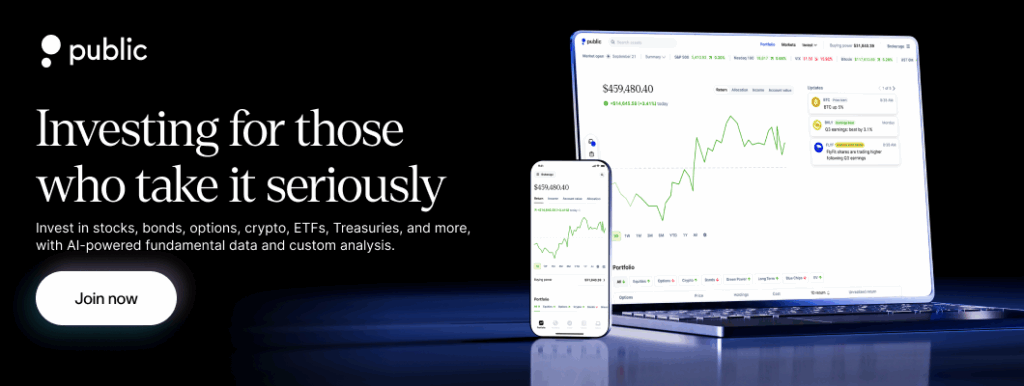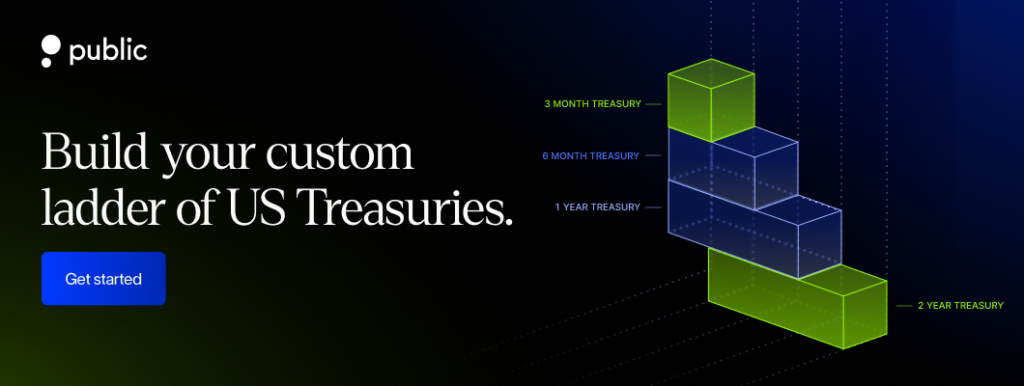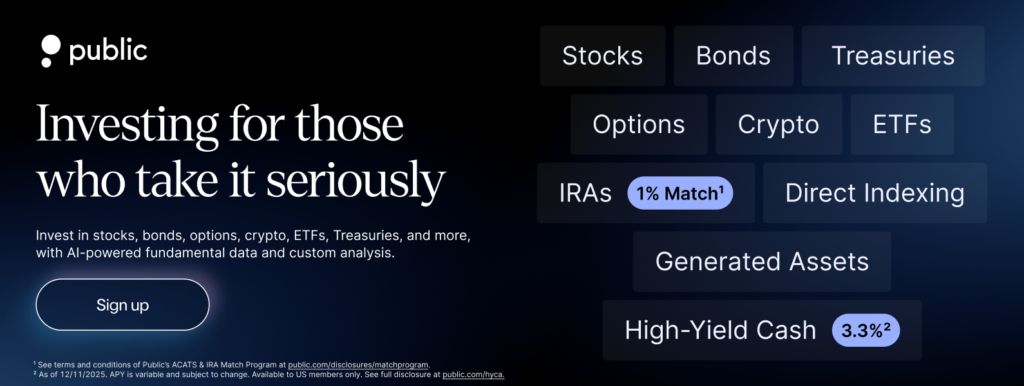High yield investments are financial instruments issued by highly leveraged or small-scale companies that provide impressive returns to investors but carry significant credit risk. The issuer presents a more attractive interest rate compared to safer investment-grade bonds for higher risk.
Each investor has their own risk tolerance, but anybody who hopes to advance their personal finance goals has to balance two factors. On the one hand, investors are looking for higher returns—but often, high-return investments also mean a higher risk.
Additional factors, like high inflation or higher interest rates, can have a greater impact on certain investments relative to others. These conditions make it even more important for investors to be aware of the risks that come with each potential investment.
Treasury bills (T-bills)
Treasury bills are short-term debt obligations issued by the U.S. government. These are very low-risk investments since they are backed by the U.S. treasury. When you buy a T-bill, the government agrees to pay back your loan plus a set interest rate. The term of these loans can be anywhere from 4 weeks up until a year. They come in five different maturity terms including 4, 8, 13, 26, and 52 weeks.
Benefits:
- Guaranteed interest rate
- Backed by the full faith of the US government
- Low minimum investment
- Short maturity terms
- Exempt from state & local taxes
Risks Level:
Low. Treasury bill rates tend to be low and are also subject to some degree of interest rate risk—meaning that their values fall when interest rates rise—as well as inflation risk.
How To Buy:
You can buy T-bills through Public’s Treasury Account. All you have to do is move your money to Public, create an account, and you’ll be ready to lock in a 3.63% interest rate*.
High-Yield Savings Accounts
While High-yield savings accounts aren’t investment products, they are some of the safest ways to earn money. they do pay out a high APY, or annual percentage yield, relative to a standard savings account. As a result, they lead to a higher return.
Benefits:
- Very low initial investment
- Often FDIC-insured
- Fully liquid
Risk Level:
Low. The primary risk of these accounts is simply that they are unlikely to rise along with inflation, so they’re usually best for shorter-term and smaller investments on a smaller time horizon, instead of long-term investment goals.
How To Buy:
You can open a High-Yield Savings Account at many banks. Currently, the average rate for high-yield savings accounts is around 3.6%***. However, due to the Fed’s interest rate hike, T-bills are currently yielding 3.63% (as of 9/11/24). T-bills are also backed by the full faith of the US government, making them a comparatively safe investment.
Still wondering what are the differences between high yield savings account vs treasury bills, we have a detailed article that covers everything from benefits, risks, interest rates with both the assets to help you choose an option that works for you.
Certificates of Deposit
Certificates of deposit are a kind of savings product in which an investor can store money, allowing it to accrue interest, for a limited period of time. Money kept in one of these accounts is stored for a set period of time, or term length—from several months on the short end to a decade on the longer end.
Benefits:
- FDIC-insured
- Guarantee a return
- Money returned within a specified timeframe
Risk Level:
Low. Rising inflation can compromise the value of the money in these accounts. Therefore, it’s typically best to invest in Certificates of Deposit when you have a shorter time horizon in mind.
The other primary risk of these investments is the penalty that occurs if investors wish to withdraw money early. Certificates of Deposit should only be purchased by investors who know they will not withdraw before the term length expires.
Where To Buy:
Certificates of Deposit can be bought at a credit union or bank.
I-Bonds
In periods characterized by a high inflation rate, Series I bonds are some of the safest investments available. These savings bonds, issued by the U.S. government, specifically help to preserve the value of the investor’s money from inflation. Investors in I-Bonds are paid interest throughout these bonds’ thirty-year maturity, but they also receive a biannual inflation rate, which is adjusted to account for economic inflation.
Benefits:
I-Bonds do not carry interest rate risk, have a low default risk because they’re backed by the government, and are exempt from state and municipal taxes (but not federal taxes).
Risk Level:
Low. As a low-risk option, I-Bonds tend to translate to low returns relative to similar investments such as municipal bonds and corporate bonds.
Where To Buy:
These bonds can be purchased online at treasurydirect.gov, and they cannot be bought or sold on the secondary market.
Money Market Funds
Money market funds are mutual funds that invest in high-quality, short term debt securities. They promise low volatility, since any investment made by a money market fund must meet certain standards when it comes to liquidity and quality.
Money market funds are typically ideal place to store money on a temporary basis, since they are low-risk. However, they are generally intended to serve as a longer-term investment, since they do not appreciate and are unlikely to yield high returns.
Benefits:
Money market funds are low-risk funds for investors who want a safe, straightforward place to keep money for the short term.
Risk Level:
Low.Because the debt instruments in which money market funds invest are highly regulated, there’s very little risk that comes with these investments. The advantage of money market funds is their safety, not their high payouts.
Where To Buy:
To invest in money market funds, investors can use a brokerage or a mutual fund firm.
Municipal Bonds
Municipal bonds are issued by states, cities and other non-federal government bodies as a means of funding local government spending on projects like schools or roads. They are similar to government bonds, but rather than being issued by the federal government, they are issued by state or local governments.
Benefits:
These can be both short and long-term investments, depending on the specific bond purchased. Municipal bonds yield interest payments, usually twice yearly.
Risk Level:
Low-High. Often backed by local governments, these bonds can carry very low default risk. However, as fixed-income securities, their value can go down when interest rates rise, especially longer-dated bonds. Some of these bonds can actually be quite risky and investors need to do a lot of research on the specific bonds to make sure they select the ones appropriate for their goals.
Where To Buy: You can buy municipal bonds online through a broker that specializes in them.
Corporate Bonds
Corporate Bonds are debt obligations issued by corporations rather than the government.
Benefits:
These can be a lower-risk investment option that tend to offer slightly higher returns than government bonds.
Risk Level:
Medium-High. Corporate bonds have fixed interest rates. This means that, when the Federal Reserve raises interest rates and produces an interest rate hike generally, the value of corporate bonds sinks. Furthermore, these bonds are not FDIC-insured, which adds a degree of risk. Since the bonds are only backed by company earnings and assets, investors need to do a lot of research to make sure they understand the risks of investing in specific company bonds in case the company gets into financial difficulties or goes bankrupt.
Where to Buy:
You’ll need to contact a brokerage if you want to invest in these bonds.
Dividend Stock Funds
Dividend stock funds are a kind of mutual fund or ETF that pay out dividends.
Benefits:
Dividend stock funds let you diversify your investments and take advantage of companies’ profits.
Risk Level:
Medium-High. If a company stops generating profits, you may not receive payouts. These dividends aren’t guaranteed either. Most importantly, since the underlying investments are stocks that pay dividends, these investments are not immune to great losses during general stock market drawdowns.
Where To Buy:
You can buy dividend stock fund ETFs from Public. Most of the popular dividend funds are available for purchase on the platform.
ETFs
An ETF, or exchange-traded fund, is an exchange-traded fund in which money from various investors is pooled and invested in a cluster of securities. These securities often track one sector or product type.
Benefits:
ETFs can be a lower-risk option than purchasing individual stocks because they come with built-in diversification, ensuring that your money isn’t invested entirely in just one company. Furthermore, if managed by a broker, ETFs can bring fewer broker fees than individual investments.
Risk Level:
Medium-High. The yields and risks from an ETF have the potential be lower than from individual stocks, but still bear the risk of market fluctuations. ETFs come in many forms and invest in many things so investors should make sure they understand the risks of the specific ETF they are purchasing to make sure it aligns with their goals.
Where To Buy:
You can buy ETFs using a brokerage like Public.
REITs
A Real Estate Investment Trust, or REIT, is a specific type of real estate investment. With a REIT, you don’t have to be responsible for managing a property. Instead, you simply invest in a company that owns real estate, allowing you to enjoy dividends without a massive time commitment.
Benefits:
Historically, real estate has tended to be a reliable, income-generating investment that has helped diversify portfolios.
Risk Level:
High. REITs, or real estate investment trusts, are a somewhat higher-risk option compared to some others discussed here. This is because they tend to require a higher initial investment. Real estate tends to go through cycles and values can fluctuate greatly – not all real estate is created the same so investors should make sure they understand the risks involved with their specific investment or property.
Where To Buy:
You can buy REITs from a brokerage firm. Alternatively, some investors choose to invest in REIT ETFs, which can be bought from Public.
Conclusion
Depending on your financial circumstances and investment goals, you may be willing to tolerate more or less investment risk. Economic downturns can make risks less appealing, while external factors like inflation and changing interest rates can affect your risk calculations.
Treasury bills are a comparatively safer option since they’re backed by the full faith of the US government. The yields on new T-bills have also been increasing recently, thanks to the Fed’s decision to increase interest rates. Currently, T-bills yield a 3.63% return*, making it a strong option for investors looking for lower-risk investments and higher returns.



